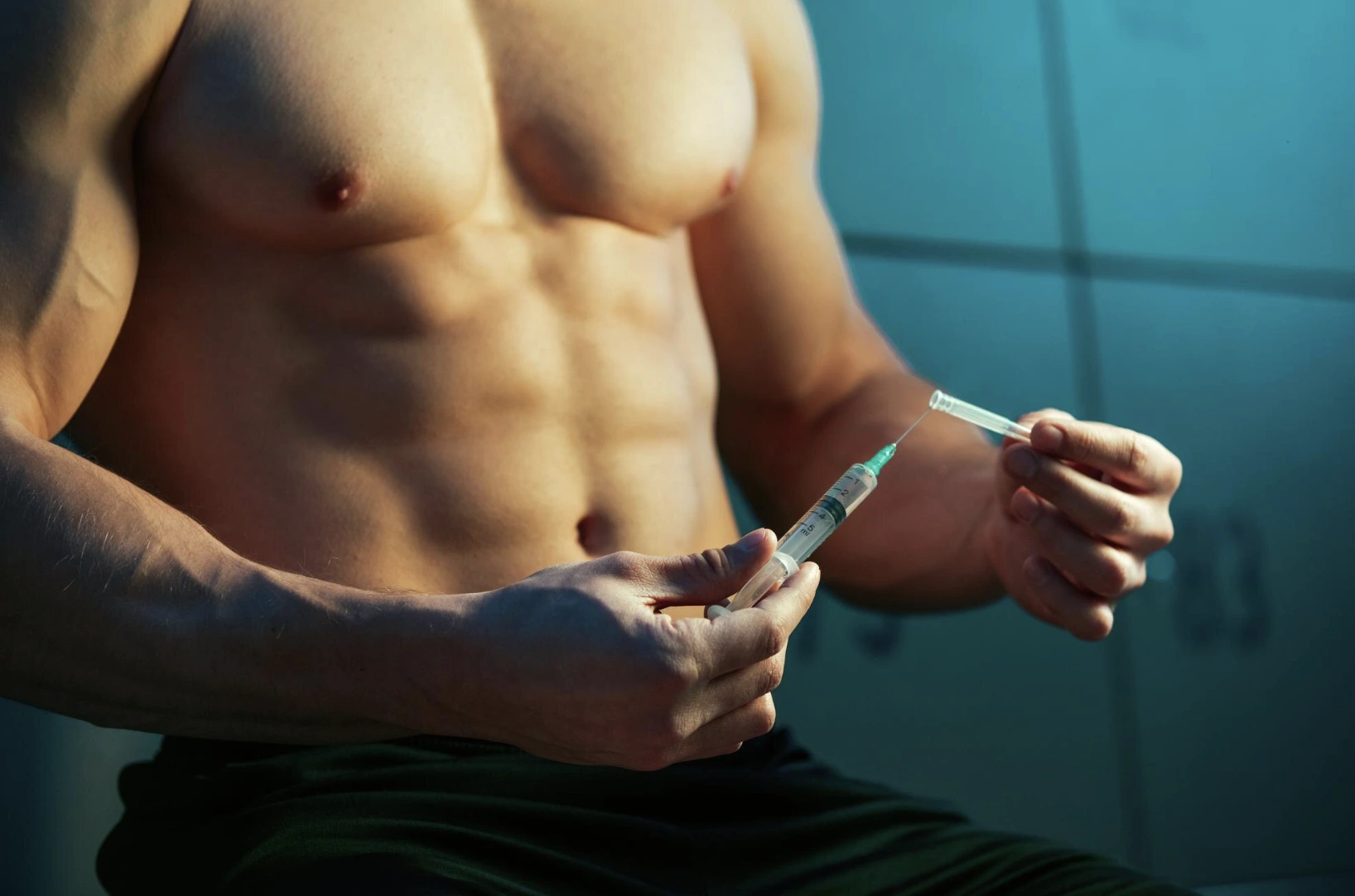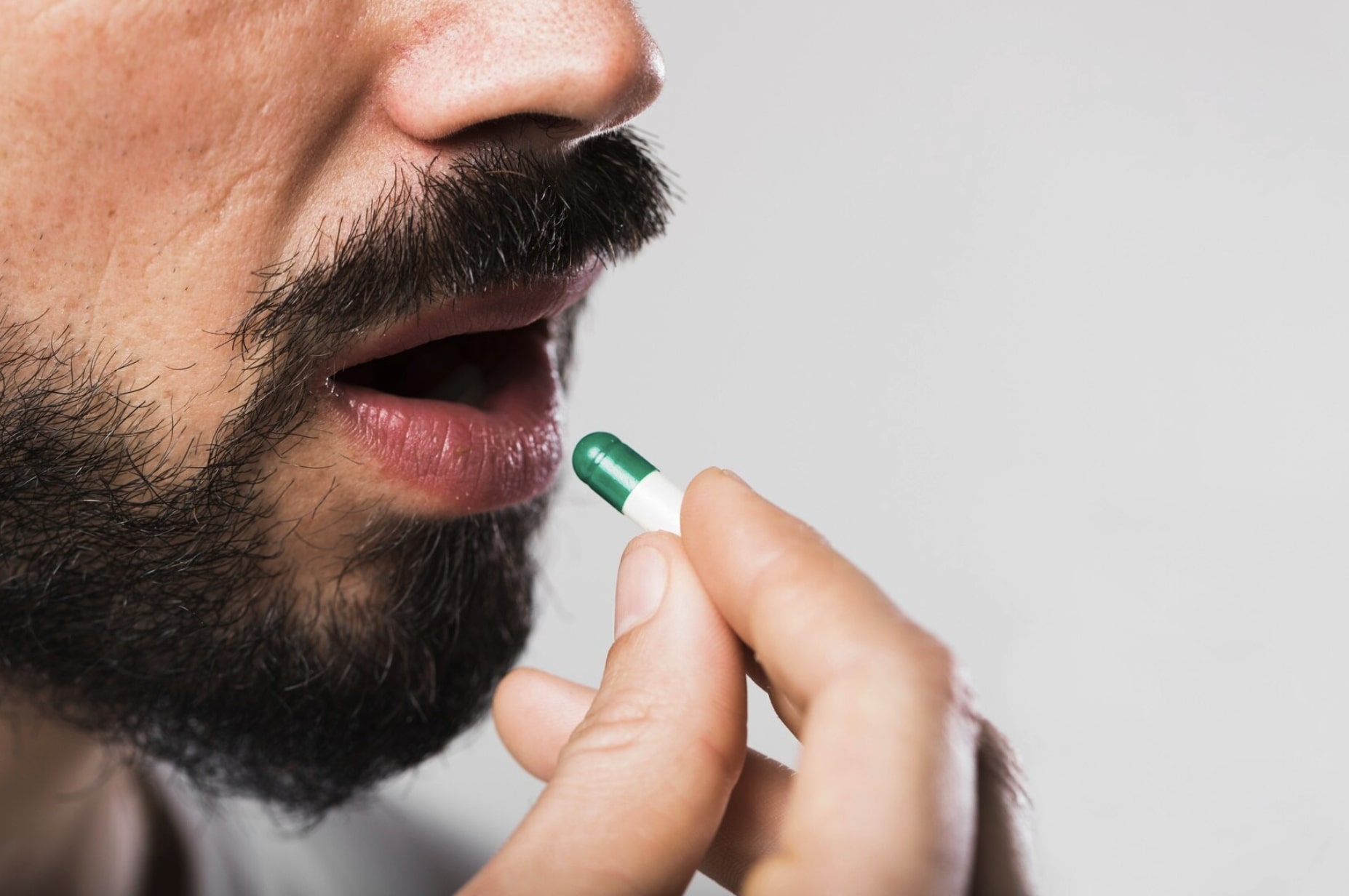Testosterone plays a central role in men’s health, influencing everything from energy and focus to lean body mass and sexual vitality. However, it’s important to remember that testosterone is a controlled substance under U.S. law. (1)
For men exploring testosterone replacement therapy (TRT) to address symptoms of low testosterone, this may come as a surprise. But understanding why testosterone is regulated, what the laws mean, and how to use it safely under medical supervision is essential for protecting both your health and your legal standing before you begin treatment for low T.
In this guide, we’ll explain why testosterone is a controlled substance, how it came to be regulated, and why working with a licensed clinic such as Gameday Men’s Health ensures you are receiving safe and effective treatment.
What Is Testosterone and Why It Matters
Testosterone is the primary male sex hormone and an androgenic-anabolic steroid hormone naturally produced by the body. It drives physical, mental, and emotional well-being throughout men’s lives. Healthy testosterone levels help maintain (2):
- Lean muscle mass and strength
- Energy and endurance
- Focus, motivation, and stable mood
- Healthy libido and sexual performance
As men age, testosterone production naturally declines, often by about 1% per year after age 30. (3) For some, this decline can lead to noticeable symptoms such as fatigue, reduced muscle tone, irritability, or low sex drive.
In these cases, testosterone replacement therapy (TRT) can be a legitimate, medically supervised treatment. TRT may help men restore healthy hormone balance, improve energy, enhance mental clarity, and provide a higher overall quality of life.
However, because testosterone can also be misused outside of a medical setting, it’s classified by the government as a controlled substance, and that distinction has important implications.
What Does “Controlled Substance” Mean?
The term “controlled substance” comes from the U.S. Controlled Substances Act (CSA), a law passed in 1970 to regulate drugs with potential for abuse or dependence. Under this law, substances are divided into five categories known as “schedules.” (4)
- Schedule I: No accepted medical use and a high potential for abuse (e.g., heroin, LSD).
- Schedule II: Accepted medical use but high potential for abuse (e.g., oxycodone, Adderall).
- Schedule III: Accepted medical use with a moderate potential for abuse (e.g., anabolic steroids such as testosterone).
- Schedule IV: Lower potential for abuse (e.g., Xanax, Valium).
- Schedule V: Lowest potential for abuse (e.g., certain cough syrups).
Testosterone is classified as a Schedule III controlled substance, which means it has legitimate medical applications but also carries risks if misused. This scheduling ensures testosterone can only be distributed and used under the guidance of licensed healthcare professionals, such as Gameday Men’s Health.
Why Testosterone Is Classified as a Controlled Substance
Testosterone wasn’t always regulated as tightly as it is today. Anabolic steroids, including testosterone, were often used recreationally by athletes, bodybuilders, and others seeking physical enhancement from the middle of the 20th century through the 1980s. (5)
This widespread misuse raised concerns about health consequences and unfair athletic advantages. Reports linked non-medical use of testosterone to serious side effects such as heart problems, liver damage, hormonal imbalances, and aggressive behavior. (6)
In response, the Anabolic Steroid Control Act of 1990 was passed, officially placing testosterone and other anabolic steroids under Schedule III of the Controlled Substances Act. This legislation made it illegal to possess or distribute these substances without a prescription.
Today, healthcare providers must follow strict guidelines when prescribing testosterone. That includes verifying a patient’s medical need through lab testing, documenting treatment plans, and regularly monitoring hormone levels.
The goal of this regulation is to prevent illegal distribution and misuse of testosterone, to protect patients from unsafe or contaminated products, and to ensure medical use is based on legitimate clinical need rather than performance enhancement.
These safeguards exist to balance access to effective treatment with the responsibility to prevent harm.
Legal vs. Illegal Use of Testosterone
The difference between legal and illegal testosterone use comes down to medical supervision and prescription authority.
Legal use means testosterone has been prescribed by a licensed healthcare provider based on diagnostic testing and clinical evaluation. Under this supervision, testosterone therapy is safe, controlled, and personalized to treat each individual. Dosages are tailored to the patient’s body chemistry, and regular follow-ups ensure optimal results and minimal side effects.
Illegal use refers to taking testosterone without a prescription or buying it from unverified sources, black-market sellers, or overseas pharmacies.
Unregulated testosterone products can cause serious health and legal issues, including:
- Contaminated or counterfeit drugs that may contain dangerous impurities or incorrect dosages
- Hormonal disruption leading to infertility, mood swings, or testicular shrinkage
- Legal consequences such as fines or potential jail time for possession without a prescription (7)
Some men turn to online “shortcut” sources for testosterone believing they’ll save money or get faster results than using a licensed provider. However, the reality is that unprescribed testosterone can often cause more harm than good, and could make recovering from low T that much more difficult.
Safe and Responsible TRT Under Medical Supervision
When prescribed by a licensed medical provider and properly monitored, testosterone replacement therapy can be safe and effective for appropriate candidates. The key is consistent medical oversight and individualized treatment planning.
A responsible TRT program includes:
- Comprehensive testing to confirm low testosterone levels and rule out underlying causes.
- Personalized dosing based on your unique hormone profile and goals.
- Ongoing monitoring to ensure healthy hormone balance and detect any side effects early.
- Patient education so you understand how to use testosterone safely and responsibly.
At Gameday Men’s Health, testosterone therapy is managed by licensed professionals who follow all federal and state regulations to ensure the patient’s safety. Every treatment plan is designed to restore balance naturally, using medical-grade testosterone prescribed only when clinically appropriate.
Patients receive individualized care and ongoing support so they can feel their best while staying within legal and safety guidelines. When performed correctly and with proper supervision and dosage, TRT is about bringing your body back into equilibrium and restoring T levels to their appropriate levels, not elevating them to unnatural levels.
Moving Forward with Confidence and Safety
Testosterone therapy can be life-changing for men struggling with fatigue, low libido, or decreased strength due to hormonal imbalance. But it’s crucial to approach testosterone therapy the right way — through licensed medical supervision, not self-diagnosis or online shortcuts.
By understanding what testosterone can do and why it’s classified as a controlled substance, you can make informed decisions that protect your health, follow the law, and deliver lasting results.
With that said, men struggling with low testosterone should know that there are still safe and effective options that will help you feel more like yourself again. At Gameday Men’s Health, our TRT program is built around three pillars to help men regain control over their health: clinical accuracy, personalized care, and patient safety.
If you suspect you may have low testosterone, and are looking for answers, contact your local Gameday Men’s Health location today to schedule a consultation. A quick, confidential test is the first step toward finding the right solution for restoring your energy, focus, and confidence safely.
References
- Drug Scheduling
- How Testosterone Benefits Your Body
- Why Are Testosterone Levels Decreasing?
- The Controlled Substances Act (CSA): A Legal Overview for the 119th Congress
- What Is the History of Anabolic Steroid Use?
- The Uses of Anabolic Androgenic Steroids Among Athletes; Its Positive and Negative Aspects- A Literature Review
- Steroids Fast Facts











